News
Protocol Village: Arthur Hayes-Backed Maelstrom Pledges Grants for Open-Source Bitcoin Devs
July 17: Maelstrom , a decentralization-focused venture firm managed by the family office of BitMEX co-founder Arthur Hayes, announced a new " Bitcoin Grant Program " to support developers working on the oldest blockchain. According to a post: "Bitcoin is the bedrock asset in the crypto space, and unlike other crypto projects, Bitcoin never conducted an offering to raise funds for its technical development. Maelstrom, like other companies in the space, indirectly relies on the work of open-source Bitcoin developers.... We are therefore keen to give back and donate to the Bitcoin technology, on which the crypto ecosystem depends. The objective of the program is to help with the technical development of Bitcoin and enhance its resilience, scalability, censorship resistance and privacy characteristics... A Grantee will be expected to contribute to Bitcoin’s technical development, potentially in the form of pull requests or review work for the Bitcoin Core software project." The program is offering 12-month grants, with payments made monthly in BTC, USDC or USDT, with grants ranging from $50,000 to $150,000 per developer. Grant stacking is permitted with a cap at $250,000 a year. Applications are due prior to Aug. 25.

Waterfall, Based on Directed Acyclic Graphs, Launches Mainnet
July 17: Waterfall , a proof-of-stake smart-contracts project based on directed acyclic graphs (DAG) technology , has gone live with its main network with 7,500 active validators, according to the team. Waterfall is "capable of supporting at least 1.5 million nodes, more than any other PoS.... Validators will be rewarded with grants and rewards distributed to researchers and developers who assist with community-driven security auditing activities, such as completing bug bounties."
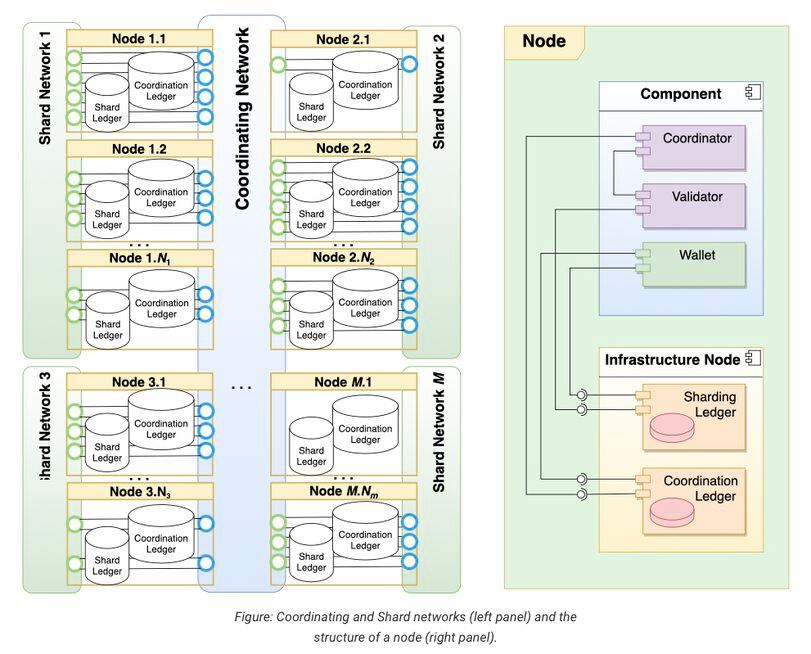
Aptos-Based KYD Gets Exclusive Ticketing Deal for NYC's Le Poisson Rouge
July 17: KYD Labs , a live event ticketing platform powered by the Aptos blockchain, and New York's Le Poisson Rouge (LPR) announced an exclusive, four-year ticketing partnership. According to the team, the project "is transforming the U.S. music industry during a time of notable dissatisfaction with traditional ticketing giants. Currently serving 500,000+ fans, KYD Labs acts as the infrastructure to enable music venues like LPR to turn their ad spend into efficient ticket sales. This consolidation enables venues and artists to achieve up to 10x returns on ticket, merchandise and music ad spend."

Chromia Goes Live on Mainnet: 'Beginning of Relational Blockchain Era'
July 17: Chromia , blockchain ecosystem that aims to avoid network congestion partly by giving every decentralized app (dapp) its own cluster of nodes and computational resources , has gone live on mainnet, "marking the beginning of the relational blockchain era," according to the team: "The mainnet launch marks the genesis block of the new native CHR token and will enable the current CHR token, which was issued as ERC-20 and BEP-20, to be bridged to the MVP mainnet. The MVP Mainnet also includes staking delegation process, payment of network hosting fees and provider payouts."
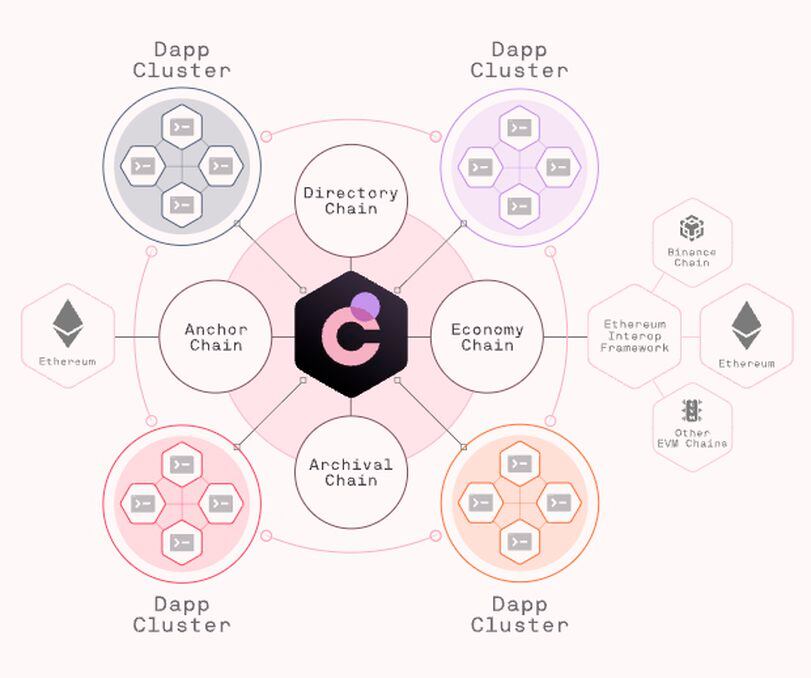
Ethereum Enterprise Alliance Releases 'DeFi Risk Assessment Guidelines'
July 17: The Ethereum Enterprise Alliance , an industry group , released a new technical specification, " DeFi Risk Assessment Guidelines ," with OpenZeppelin, Consensys, Hacken and Certik contributing, according to the team. "For protocol founders there's a go-to instruction on risks, its mitigation and documentation, what technical documents needed, what their structure should be, what data and in what format to include. For regulators, it's a standard for licensing decisions, used to update requirements for DLT foundations seeking licenses from the ADGM (the UAE regulator) and referenced in the second cohort use case of the EU's Sandbox program. For investors, it can be used to identify potential risks."
Protocol Village is a regular feature of The Protocol , our weekly newsletter exploring the tech behind crypto, one block at a time. Sign up here to get it in your inbox every Wednesday. Project teams can submit updates here . For previous versions of Protocol Village, please go here . Also please check out our weekly The Protocol podcast.
Ava Protocol Launches Mainnet on Ethereum as EigenLayer AVS
July 16: Ava Protocol , recently renamed from OAK Network and describing itself as an "intent-based infrastructure that empowers private autonomous transactions," has launched its mainnet on Ethereum as an EigenLayer AVS for smart contract automation, "enhancing Web3 transaction efficiency, privacy and composability," according to the team: "This enables developers to integrate event-driven super-transactions without custom code, simplifying complex on-chain operations, offering advanced capabilities beyond the Ethereum Virtual Machine, supporting automated tasks like payments and dynamic NFT minting. This follows a successful testnet and leverages pooled security from Ethereum validators, positioning Ava Protocol to revolutionize smart contract automation."
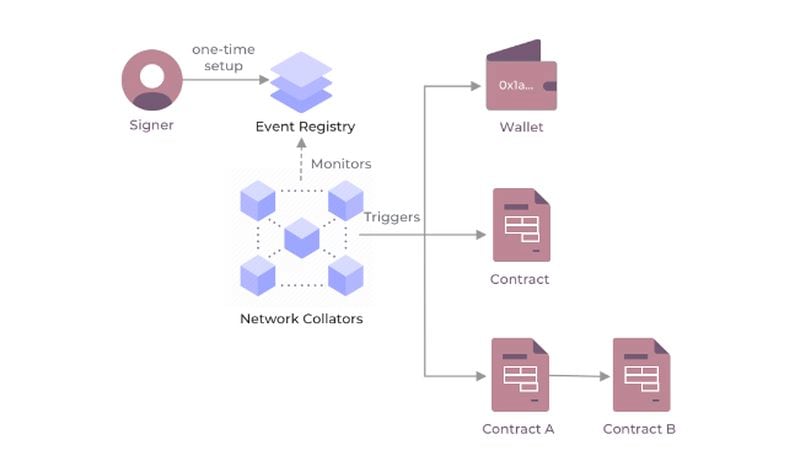
Huddle, Decentralized Real-Time Communications Network, to Build L3 on Arbitrum
July 16: Huddle01 , a decentralized real-time communications (dRTC) network, announced a partnership to build their L3 on Arbitrum utilizing Rollups-as-a-Service Caldera. Accorind to the team: "With an impressive 5 million minutes clocked to date on the platform, Huddle01 is a multi-sided network composed of media nodes. Suppliers can supply excess bandwidth for users of audio/video meetings. Huddle01’s partnership with Arbitrum and Caldera will further improve the latency issues plaguing existing audiovisual providers." (ARB)
Mira, Decentralized AI Infrastructure, Announces $9M Fundraising Led by Bitkraft, Framework
July 16: Mira , a decentralized AI infrastructure platform aiming to expand access to advanced AI resources, has announced the closing of a $9 million seed round led by Bitkraft Ventures and Framework Ventures, with participation from Accel, Crucible, Folius Ventures, Mechanism Capital, SALT Fund and notable angel investors.
Hermetica Deploys Bitcoin-Backed Synthetic Dollar Via Runes
July 16: Bitcoin-based DeFi protocol Hermetica has deployed its BTC-backed synthetic dollar (USDh) on Bitcoin via the Runes protocol. According to the team : "USDh allows Bitcoiners to hold non-custodial BTC while earning yield, eliminating the need for centralized exchanges or fiat-backed stablecoins. This dollar-pegged stablecoin enhances interoperability between Bitcoin layers, already showing significant utility through an integration with Ordinals lending protocol, Liquidium, which has over $100 million in loan volume."
Vega Protocol Adds Bridge to Arbitrum, Implements Axelar-Powered Squid
July 16: Vega Protocol has unveiled a dual-pronged upgrade to its infrastructure, according to the team : "A bridge to Arbitrum, a layer-2 scaling solution for Ethereum, slashes gas fees and speeds up transactions, with deposits now completing in a minute or less (compared to about 15 minutes on the Ethereum mainnet bridge). Vega has also implemented Squid's cross-chain functionality, powered by Axelar's messaging service, allowing users to deposit assets from various blockchains, automatically swapping them to Vega-supported assets. The upgrade also enables Vega to tap into Arbitrum oracles for price data and settlements."
Polygon's New ZK Proving System, 'Plonky3,' Comes as Open-Source Toolkit
July 16: Polygon Labs , the main developer firm behind the layer-2 blockchain Polygon, released on Tuesday the latest version of its zero-knowledge proving system, “ Plonky3 ” – designed to be more flexible than the previous model. Plonky3 is now available as open-source software under the popular MIT and Apache licenses, Polygon Labs said. CoinDesk 20 asset: {{ MATIC }}
Waves Blockchain Ecosystem Founder Launches Units.network Testnet
July 16: Waves blockchain ecosystem founder Sasha Ivanov has launched a fully functional testnet for Units.network , "an innovative ecosystem of interoperable blockchains built atop the Waves platform," according to the team: "This significant development introduces a comprehensive Layer 2 solution, utilizing a re-staking approach to create a fully decentralized network that enables the seamless deployment of interconnected blockchains, all supported by existing Waves validators. This initiative aims to address and rectify challenges faced by the Waves ecosystem, particularly those stemming from the collapse of the USDN stablecoin over the past two years. Units.network will serve as the long-term roadmap for Waves, resolving issues and compensating the community. The first Units chain token, Unit0, will be airdropped to affected USDN holders and users of Waves dApps impacted by the USDN situation. Notably, Sasha will not have any allocation in the Unit0 token, ensuring that it is entirely community-driven."
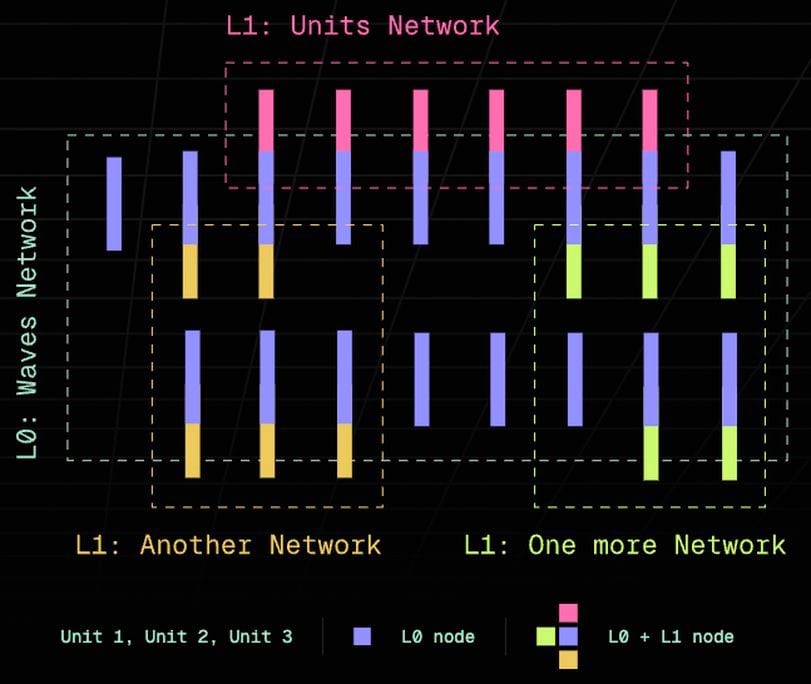
BitsCrunch, Decentralized Blockchain Analytics Project, Enables Authenticity Verification, Fraud Detection
July 16: BitsCrunch , a decentralized, AI-enhanced data network for blockchain analytics and forensics , announced a strategic expansion beyond its NFT indexing solution, extending its AI-powered data analytics capabilities to regulators, CEXs, gaming developers, DeFi participants and more, according to the team: "The bitsCrunch Network now serves a host of Web3 use cases, enabling authenticity verification, fraud detection, collateral evaluation, AML and KYC, investment analysis and transaction monitoring. BitsCrunch is addressing various data analytics, security and validation needs across different blockchain applications, as a comprehensive solution provider for the entire Web3 industry."
Jugemu.ai, AI-Meets-Web3 Startup, Raises $1M, Launches First Application
July 16: Silicon Valley-based AI-meets-Web3 startup Jugemu.ai , which has raised $1 million, announced the release of its first application, " Web3 Projects ." According to the team: "Jugemu.ai aims to democratize access to generative AI, including models like ChatGPT and Claude, and plans to launch its L2 blockchain mainnet by the end of 2024. With a single subscription, users can access multiple AI models at a lower cost, ensuring data ownership while creating an AI ecosystem through token incentives."
Plume Network, Modular EVM L2 Designed for RWAs, Announces Testnet Launch
July 15: Plume Network , a modular EVM layer-2 built to bring real-world assets (RWAs) on-chain, announced the launch of its testnet, with Celestia underneath and support from partners including Bitget Wallet and Supra. According to the team : "The ecosystem opens a new venue where crypto natives as well as traditional finance participants can get exposure to, invest or utilize all forms of RWAs from real estate, collectibles, alternative assets, and more. Projects can easily deploy any type of asset or market on Plume by leveraging their compliant technology stack and also accessing their strong crypto native community."
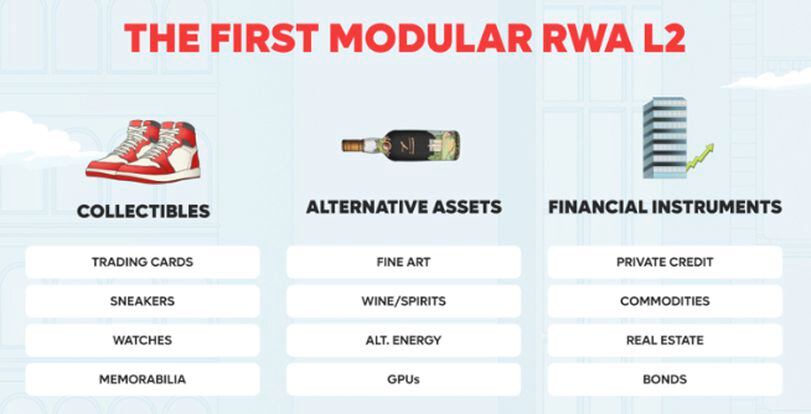
BounceBit, Bitcoin-Oriented Proof-of-Stake L1, Launches 'Easy' as First Product Following Mainnet Launch
July 15: BounceBit, a layer-1 proof-of-stake blockchain ecosystem oriented toward Bitcoin, has launched " Easy " as its first product following a mainnet launch in May. According to the team: "Easy is a yield-bearing protocol designed to make institutional yield on bitcoin and USDT more accessible. It leverages basis trading to provide delta-neutral yield and off-exchange settlement (OES) in combination with industry-standard custody via Ceffu (previously Binance Custody). The project added protocol-native $BB token rewards as means to get more traction. Interestingly, this product relinquishes the mechanism of Liquid Custody, a concept the project introduced previously."
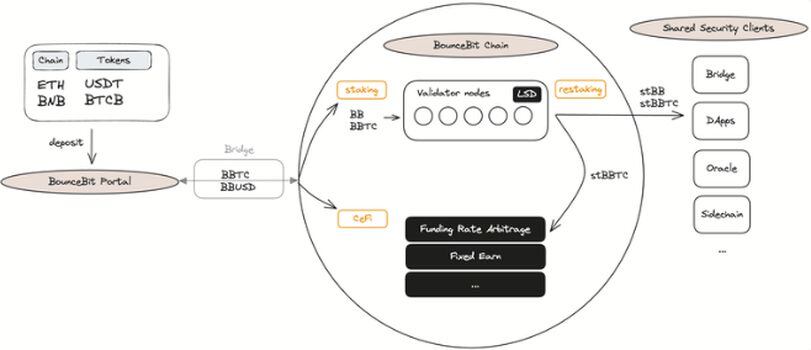
Io.finnet Proof-of-Concept for 'Self-Owned Digital Identity Platform' Comes With Decentralized Identifiers, Verifiable Credentials
July 15: Io.finnet , an infrastructure provider focused on enterprise blockchain and multi-party computing (MPC), announced that its R&D team has successfully validated the proof of concept for "io.ID," a self-owned digital identity platform. According to a press release: "Io.ID reimagines digital identity management by integrating cutting-edge technologies like decentralized identifiers (DIDs), verifiable credentials (VCs) and threshold signing via trustlessMPC."
Moonbeam Integrates Rarible, Will Acquire 'NFTrees' to Go Carbon Neutral
July 15: Moonbeam Network , describing itself as the " most Ethereum-compatible smart-contract parachain in the Polkadot ecosystem ," has integrated NFT protocol Rarible, enabling developers to construct custom NFT marketplaces on Moonbeam. According to the team: "The first major NFT collection on Moonbeam to be featured on the Rarible.com NFT marketplace hub is from Carbify, a Real-World Assets platform that allows users to invest in Brazil’s Amazon Rainforest trees and collect carbon offset debits. As part of the partnership, the Moonbeam Foundation will acquire Rarible NFTrees to make the network carbon neutral in 2024."
Bima, Developer of Bitcoin-Backed Stablecoin, Raises More Than $2.25M Led by Portal Ventures
July 15: Bima Labs , a developer of Bitcoin-backed stablecoins, closed its seed fundraising round, raising over $2.25 million. According to the team , the round was led by Portal Ventures, with participation from Draper Goren Blockchain, Sats Ventures, Luxor Technology, Delta Blockchain Fund, Halo Capital, CoreDAO and angels including DOMO (creator of BRC-20), Ryan Fang (Ankr), Paul Taylor, Brian Crain (Chorus One), Paul Kim (Notifi and ex-director of product at Circle), Jeffrey Feng (Sei Labs) and Smokey (Berachain).
Pyth's New 'Express Relay' Aims for Decentralized Solution to MEV
July 11: Pyth , a blockchain oracle protocol , has officially launched its newest product, Express Relay , on mainnet, according to the team: "The launch introduces a novel decentralized solution to the long-standing problem of MEV in processing liquidations and market-efficiency enhancing transactions in DeFi – once thought to be an inevitable characteristic of on-chain finance. The primitive connects DeFi protocols directly with a network of established searchers through protocol-controlled auctions for events like liquidations. Searchers who have already integrated include Flow Traders, Wintermute, Auros, Flowdesk, Caladan, Tokka Labs and Swaap Finance."
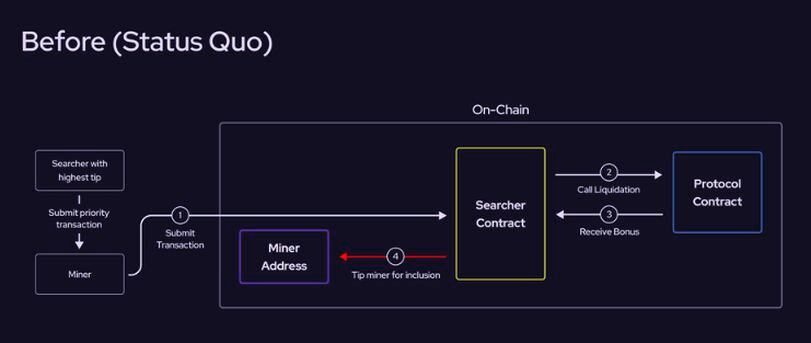
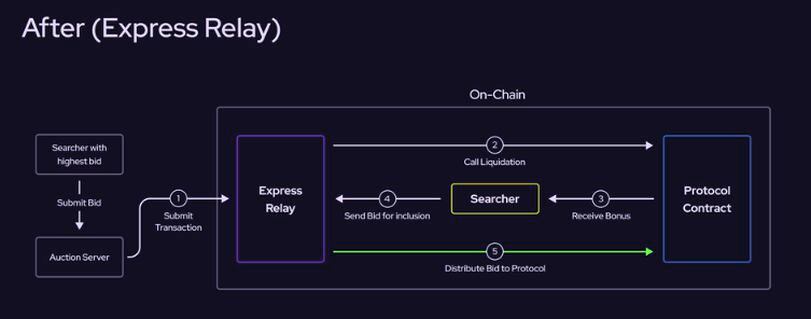
'Simple Distributed Validator Technology' Module From SSV, Lido Now Deployed
July 11: The Simple Distributed Validator Technology (DVT) Software Module , powered by SSV.Network , has been deployed and is ready for deposits, according to the team: "The Simple DVT module aims to diversify the set of node operators connected to and utilizing the Lido protocol while enhancing resilience, distribution and security. This development also sets the stage for more scalable and permissionless DVT-based modules in the future. This launch represents a significant step towards a more decentralized, secure, and accessible Ethereum staking ecosystem, with potential ripple effects across the entire crypto space."
RECRD, SocialFi Platform Allowing Monetization for Creators, Raises $4M Led by Sui Foundation
July 11: SocialFi platform RECRD has emerged from stealth with an investment of $4 million led by the Sui Foundation, according to the team. Other investors include Mitch Lowe, co-founding executive of Netflix; Mitch Richmond, six-time NBA All-Star; Jeffery Shoonover of Hollywood.com ; Alphabit Fund and DNA Fund. According to the team: "RECRD allows monetization for creators, users and brands through a unique patent-pending engagement model built on dynamic video reactions called REBNDS (rebounds). This along with the DeFi integration powered by the Sui blockchain, are at the core of RECRD’s ambition to disrupt the $250 billion creator economy." (SUI)
Coinbase Unveils Web App to Track Personal On-Chain Wallets
July 17: Jumping in on a continued effort by wallet makers to simplify access and user experience, particularly for newcomers, Coinbase (COIN) is introducing an app that lets users manage all of their on-chain wallets and activities in one place, the company announced Thursday. The app will allow users to connect multiple wallets and let them buy, swap, send, stake or mint coins from their wallets. Adopters of the app will also be able to interact with each other.
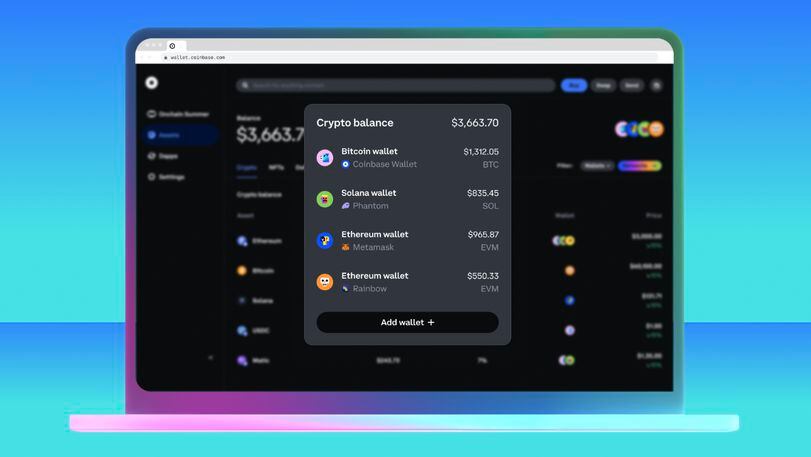
Swiss Bank Sygnum Announces 'Connect' as 24/7 Settlement Network
July 11: Switzerland-based Sygnum Bank , describing itself as "a global digital asset banking group," announced the launch of Sygnum Connect, its 24/7 multi-asset instant settlement network. According to a press release : "The network settles fiat, digital assets and stablecoin transactions for institutional investors, liquidity providers, stablecoin issuers, brokers and selected exchanges." According to the team, "This multi-asset service effectively solves the T+1 synchronization problem for thousands of institutions. Instant settlement could significantly reduce counterparty risk and increase capital market efficiency. Sygnum has already onboarded 2,000+ institutional clients, including Revolut, Worldpay, BNP Paribas, BNY Mellon, EToro."
Sonic, Gaming-Focused L2 on Solana, Partners With Neon Stack for EVM Compatibility
July 11: Sonic , a gaming-focused layer-2 network atop Solana, has partnered with Neon Stack to bring EVM compatibility to the Sonic Virtual Machine (SVM). According to the team: "This collaboration allows Ethereum developers to launch EVM-powered dapps on Sonic's HyperGrid L2, designed for high-volume Web3 games with settlements on Solana L1. Davide Menegaldo of Neon Stack highlighted the expansion of Sonic's market, while Sonic's CEO Chris Zhu emphasized onboarding EVM-based Web3 games to Solana's ecosystem. The partnership aims to unite Ethereum and Solana ecosystems, leveraging HyperGrid technology for scalable, fast and secure gaming dapps."
XPortal by MultiversX Rolls Out New Features, Allows Users to 'Top-Up' Debit Cards With SOL
July 11: XPortal , describing itself as "the financial super app by MultiversX," announced new features for the Solana ecosystem experience . According to the team: "Users can now top-up xPortal Debit Cards with SOL, manage 20+ SPL tokens and access leading Solana dApps like Jupiter Exchange and Raydium Protocol via xPortal’s Discover section. These updates strengthen xPortal’s role in bridging digital and physical financial realms, facilitating seamless transitions from crypto to cash for BTC, ETH, EGLD, SOL and MATIC holders."
Animoca Brands Launches Validator on Core Chain
July 11: Core , a Bitcoin-powered layer-one blockchain for EVM-compatible smart contracts, announced that Animoca Brands has launched a validator on the Core Chain. According to the team : "This move underscores Animoca Brands’ belief in Core blockchain’s potential and a commitment to supporting the Core network's security and decentralization. By becoming a validator, Animoca Brands is actively participating in the governance and stability of Core, highlighting its trust in the vision to unlock over $1.3 trillion of trapped liquidity on Bitcoin."
SKALE's 'Pacifica V3' Upgrade to Double Transaction Throughput
July 11: SKALE , the gas-less EVM-compatible modular blockchain network, launched the Pacifica V3 upgrade, "which accelerates block mining speed by 108% and increases transaction throughput by 122%," according to the team: "Leveraging its unique modular AppChain architecture, this upgrade brings significant advancements to SKALE Network's capabilities, including improved transaction speed and predictability, enhanced network performance and improved developer tools."
Fireblocks Adds First Clutch of Crypto Safekeeping Firms to Its Global Custodian Program
July 11: Crypto custody firm Fireblocks named Zodia Custody, Komainu, CloudTech, Zerocap and Rakkar as the five firms to join its Global Custodian Partner Program, the companies said on Thursday . The global custodian program provides crypto institutions that use Fireblocks technology with local third-party crypto safekeeping options in their appropriate jurisdiction, be that in the U.K., Australia, Singapore, the UAE and Japan.
Anomaly Secures Spot in Google for Startups Cloud Program, Raises $1.45M
July 11: Anomaly has secured a spot in Google for Startups Cloud Program, and announced an oversubscribed pre-seed funding round, raising $1.45 million from Decasonic, Shima Capital and Break Orbit. According to the team: "The company enhances blockchain gaming UX with account abstraction for easy onboarding.Its AI-powered SDK allows quick creation and deployment of mini-games on social platforms. Anomaly uses Google Cloud Storage and Global Load Balancers for efficient, secure scaling. The program will help to reduce deployment lead times and drive innovation with AI for Web3."

